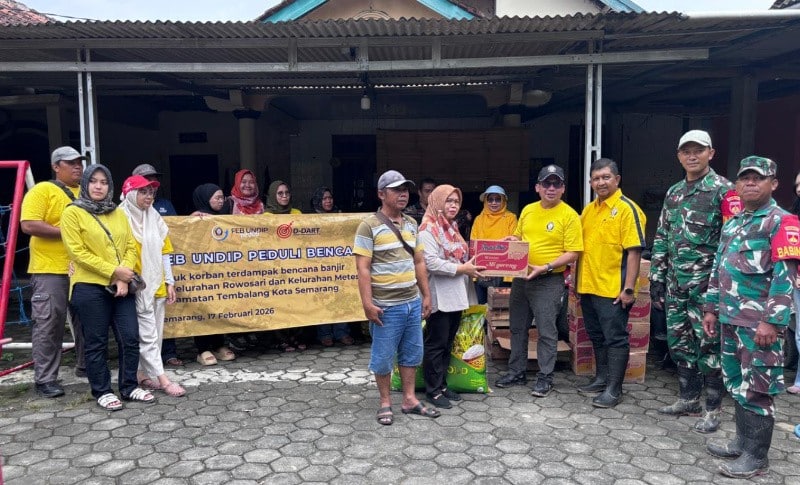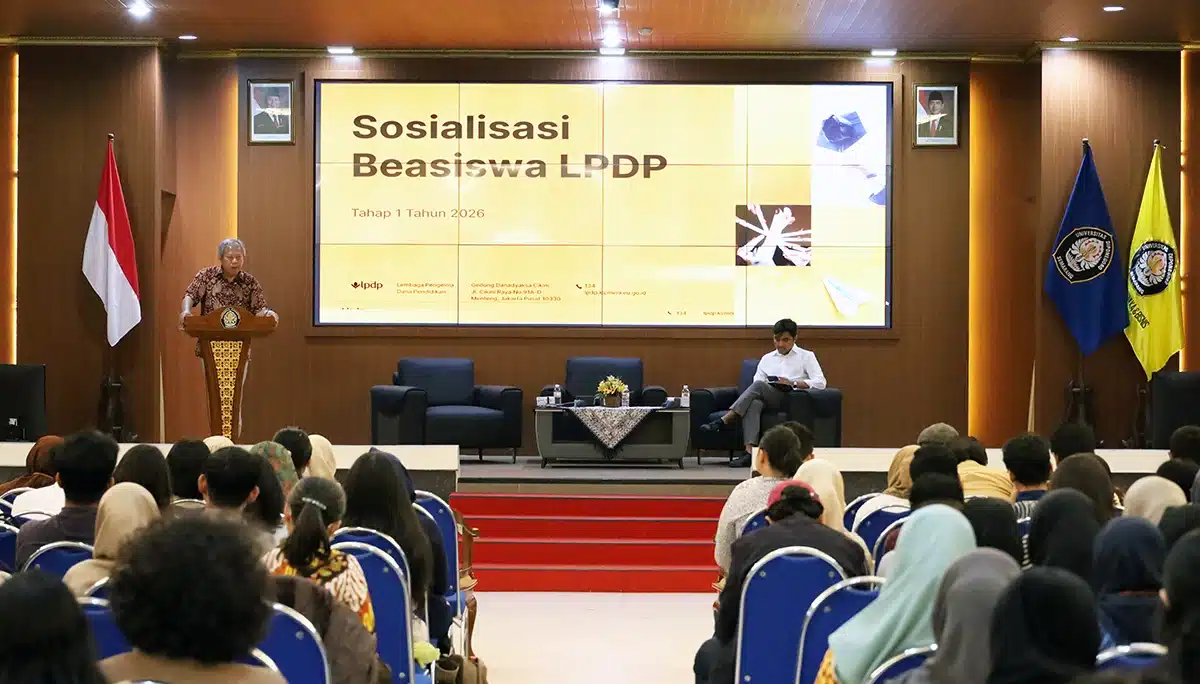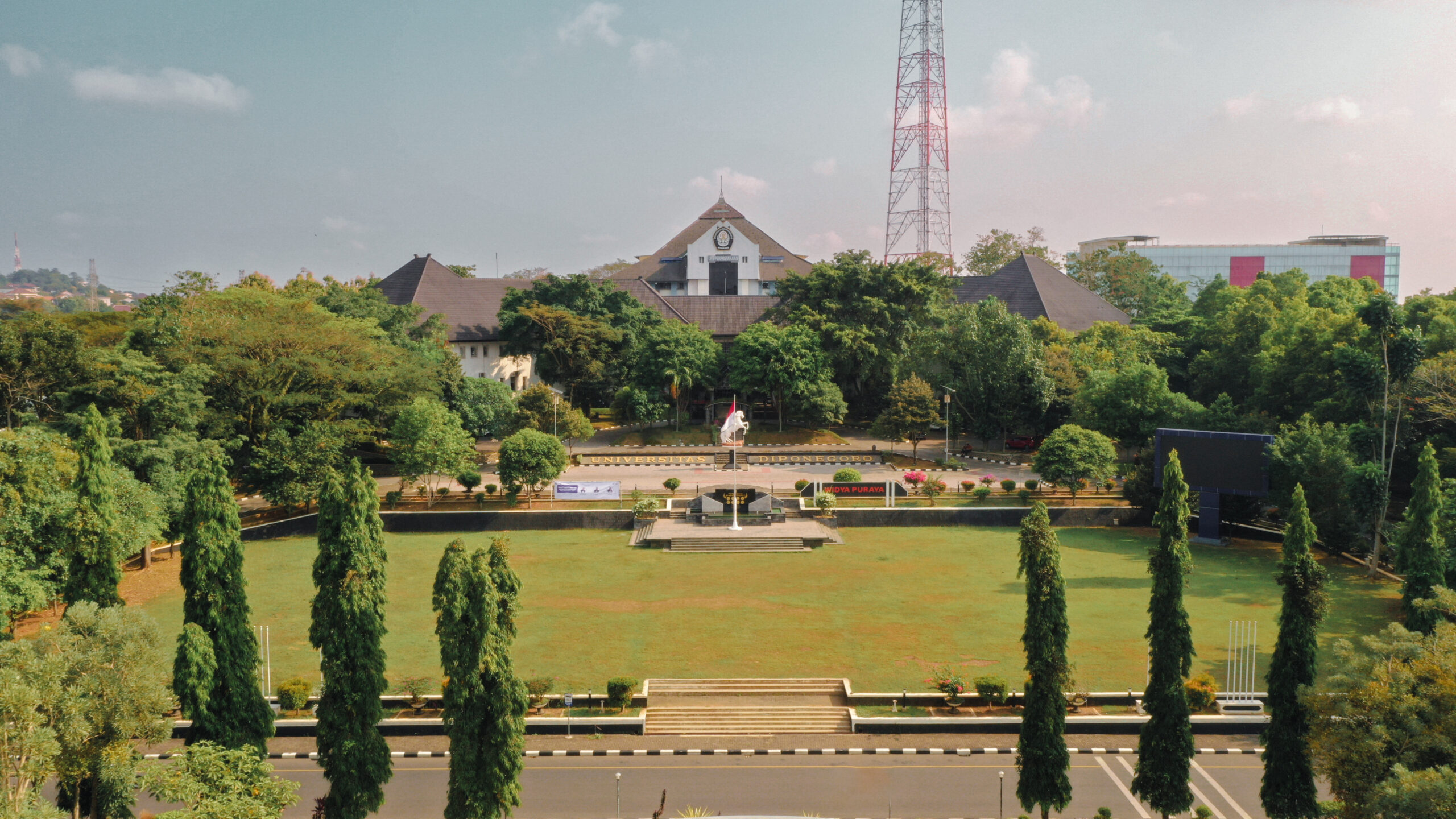SEMARANG – The National Research and Innovation Agency (Badan Riset dan Inovasi Nasional / BRIN) has recognized Universitas Diponegoro (UNDIP) as one of the Top Collaborators for 2024, placing it on par with other national public and private universities in terms of scientific publications. This recognition is based on UNDIP’s scientific output during the 2021–2024 period.
The recognition, announced in BRIN’s Top Collaborators 2024 list, acknowledges universities whose scientific publications contribute to achieving the Sustainable Development Goals (SDGs). Declared by developed and developing countries at the UN General Assembly in September 2015, the SDGs represent a global and national commitment to improving societal welfare through 17 goals to be achieved by 2030.
In its joint publications with BRIN, UNDIP produced 312 scholarly outputs, with 40.38% of its research focusing on environmental sciences. UNDIP’s publications significantly support the achievement of SDG 7 (Affordable and Clean Energy) and SDG 14 (Life Below Water).
As a reminder, the 17 SDGs include (1) No Poverty, (2) Zero Hunger, (3) Good Health and Well-being, (4) Quality Education, (5) Gender Equality, (6) Clean Water and Sanitation, (7) Affordable and Clean Energy, (8) Decent Work and Economic Growth, (9) Industry, Innovation, and Infrastructure, (10) Reduced Inequalities, (11) Sustainable Cities and Communities, (12) Responsible Consumption and Production, (13) Climate Action, (14) Life Below Water, (15) Life on Land, (16) Peace, Justice, and Strong Institutions, and (17) Partnerships for the Goals.
UNDIP Rector, Prof. Dr. Suharnomo, SE., M.Si., expressed his gratitude to BRIN for recognizing UNDIP as a partner in scientific publications. “This is a testament to the trust placed by the national agency overseeing research and innovation in UNDIP. We will not take this trust for granted and will continue to dedicate ourselves to conducting research and innovation that benefits humanity,” Suharnomo said on Monday (October 28, 2024).
He emphasized that research and innovation are integral to higher education alongside teaching and community service. He hopes that the study conducted by UNDIP’s academic community not only adheres to academic standards but also addresses societal challenges, ensuring that the scholarly work is both academically excellent and socially impactful.
With its main campus in Semarang City and branch programs in some regencies such as Batang, Pekalongan, and Rembang, UNDIP manages 184 active journals. Among them, 146 journals are listed in the Garuda-indexed Journal Proportion, Indonesia’s publication index managed by the Ministry of Research, Technology, and Higher Education. Furthermore, UNDIP has seven internationally reputable journals listed in Scopus, Scimago SJR, and WOS (ESCI).
Based on SINTA (Science and Technology Index) accreditation, a unique portal formed by Ristekdikti to help access all accredited scientific paper publications, 7 UNDIP journals are included in the highest level as SINTA 1 (S1), recognition as journals that are generally indexed by Scopus or reputable international journals and accredited through Arjuna with a grade of A. Then, 35 journals are included in the SINTA 2 category, have been certified through Arjuna with a grade of 70 to 84 and have been accredited by LIPI (Indonesian Institute of Sciences) in accordance with applicable governance and standards.
UNDIP journals that are included in SINTA 3 are 29 journals, then 17 journals are included in SINTA 4, while those included in SINTA 5 and SINTA 6 are only 8 journals and 1 journal, respectively. “We will continue to improve the categories of journals at UNDIP through various efforts that can be made,” said Suharnomo. (***)









